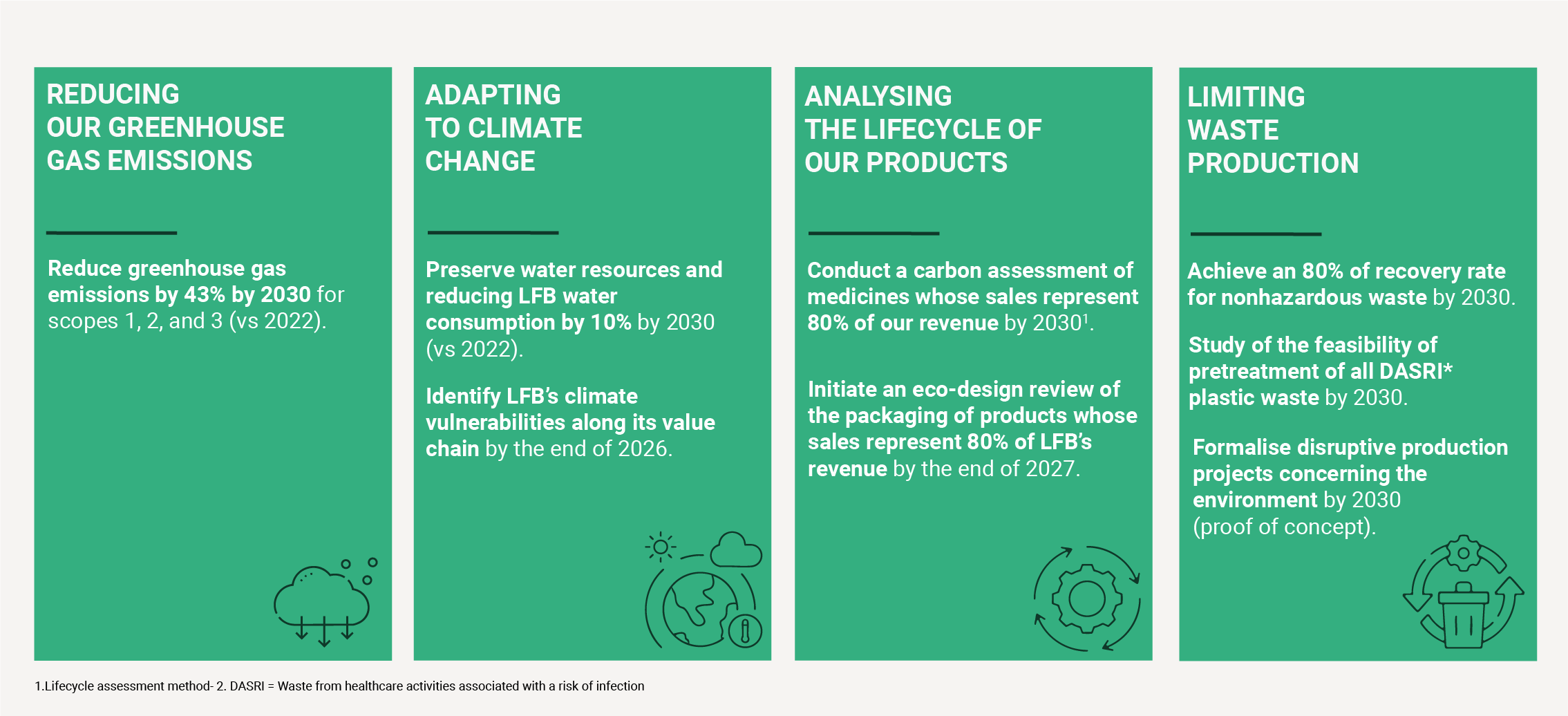Reduce our environmental impact to protect health

Respecting the environment: a key commitment for health
Environmental issues and their repercussions on public health are challenges that increase the prevalence of certain diseases while complicating the capacity of healthcare systems to sustainably meet patient needs.
Our goal is to balance industrial performance, innovation, and responsibility, for the benefit of patients and the planet:
Our evidence:
CONTEXT FOR UNDERSTANDING THE CHALLENGES
Environmental challenges are among the most pressing risks to global health today.
They aggravate many diseases, compromise the resilience of healthcare systems and increase pressure on health infrastructures.
Health and the environment are inextricably linked.Outdoor and indoor air quality, water quality, diet, exposure to chemicals, etc. are all environmental factors that play a decisive role in the onset and deterioration of multifactorial pathologies such as cancers, chronic respiratory diseases and obesity, to name just a few.
The resilience of health systems is also impacted by climate change, which significantly increases health risks, particularly for vulnerable groups, such as the elderly and people with existing health problems1. The capacity of health systems must be increased to both preserve and improve the health of populations faced with climate instability and change.
Find out more about the other pillars of our CSR Strategy:
Sources :
- 1.perational framework for building climate resilient health systems:
https://www.who.int/fr/publications/i/item/operational-framework-for-building-climate-resilient-health-systems - Shift Project
- OMS







